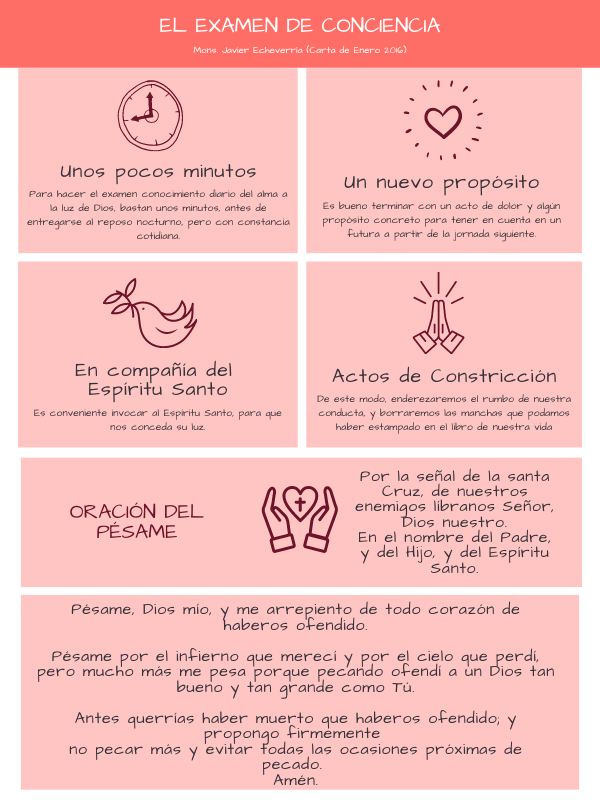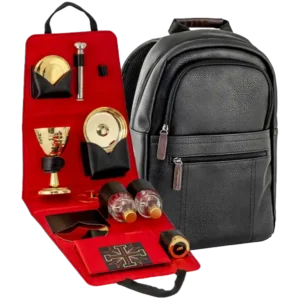
To seek a remedy for our faults is a task of love. That is why we must take advantage of a very necessary and indispensable means, which is the examination of conscience. Bishop Javier Echevarría.
The purpose of the examination is not to be anguished with the faults but to recognize them with sincerity and trust in God to then go to the sacrament of confession, knowing that we will be forgiven. The whole process moves in the infinite mercy of God manifested in Jesus Christ.
We see our faults in relation to:
At times, it is our own life that seems to go astray as a result of wrong decisions or simply our personal weaknesses. We Christians are fortunate in that we have the possibility of starting over. That possibility exists thanks to the goodness of being able to turn to the sacrament of Forgiveness, to reach the certainty that God forgives us and encourages us to start again.
Recommendations of Bishop Javier Echevarría in 2016.
In the first place, the examination is made before God, listening to his voice in the conscience of each one of us.
After that, it only takes a few minutes of daily reflection to look with the soul at the light of God. As St. Josemaría explained, it only takes a few minutes before giving oneself to nightly rest, but with daily constancy.
But there are punctual moments, for example, the examination of conscience for confession, where it will be convenient to proceed more carefully. And in all cases, it is convenient to invoke the Holy Spirit, so that he may grant us his light.
Finally, it is not just a matter of enumerating sins but of discovering the wrong attitude of the heart and with sorrow for our sins, making a firm resolution not to commit them again. It is important to end with an act of sorrow and a concrete resolution for the following day. There are always areas in which we are weaker and require special attention, but if we understand that Christ is the measure, we will see that in everything we have much to grow.
Moreover, during Lent 2015, Pope Francis presented the faithful in St. Peter's Square with a special booklet entitled. "Custodian of the heart". It contains important resources for the journey towards Holy Week. It can be downloaded from the link above.
Among these resources is an examination of conscience of 30 questions posed by the Pope to make a good confession, as well as a brief explanation on why to go to the sacrament of Reconciliation.
We offer a series of questions directed by St. Josemaría Escrivá, which can help in the examination of conscience prior to confession. This version is intended for adults.
With the collaboration of:
Opusdei.com
Aciprensa
